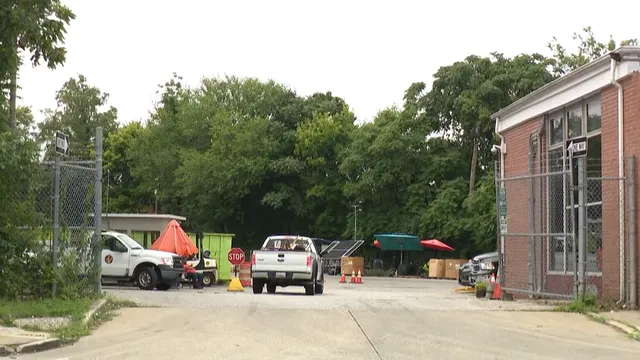
Yorkshire Water pays 40 million pounds for severe sewage overflow failures
2025-03-20 15:15- Ofwat identified severe operational failures in Yorkshire Water's sewage network leading to excessive storm overflow spills.
- Yorkshire Water will pay 40 million pounds, mainly directed toward improving storm overflow infrastructure and funding environmental projects.
- The firm is set to increase customer bills by 29% as part of its commitment to rectify past mistakes and improve environmental health.
Express your sentiment!
Insights
In the United Kingdom, Yorkshire Water has faced significant regulatory scrutiny due to severe deficiencies in its wastewater and sewage management systems. An investigation led by Ofwat, the water industry regulator, revealed serious failings in how the company operated and maintained its sewage network. This investigation concluded several months ago and uncovered that the inadequate management resulted in excessive spills from storm overflows, posing risks to the environment and public health. As a consequence of these findings, Yorkshire Water has agreed to an enforcement package amounting to 40 million pounds designed to rectify these shortcomings. The enforcement package details that 36.6 million pounds will be allocated over the next five years to improve infrastructure specifically at storm overflow sites that are particularly concerning, especially in environmentally sensitive areas. The remaining 3.4 million pounds will contribute to funding the Great Yorkshire Rivers Partnership, an initiative focused on improving water quality by eliminating artificial barriers and enhancing the regional river network. This action aligns Yorkshire Water's efforts with broader environmental goals. Alongside their commitment to remediation efforts, Yorkshire Water is facing the expectation from the regulatory body to address the identified failings rapidly. This acknowledgment of past mistakes comes as the firm is preparing to increase customer bills by 29% starting April 1. This decision has raised concerns among customers, as many already struggle with rising costs in various sectors. The chief executive of Yorkshire Water, Nicola Shaw, has expressed the company's commitment to improving the frequency with which storm overflows operate, recognizing that current operational practices are not satisfactory for either the company or its customers. Yorkshire Water's active steps commenced in 2021 to enhance its performance highlight a broader industry trend, as water firms across England and Wales are being called upon to invest significantly in infrastructure improvements. The enforcement agreement reached with Ofwat shifts the focus of financial accountability to the company itself, rather than the public treasury. As these changes evolve, customers will likely continue to feel the impacts of increased bills and renewed attention to sewage management and environmental conservation measures. Going forward, stakeholders in the water sector will remain vigilant as they monitor progress and ensure adherence to these remedial plans.
Contexts
Storm overflow spills in the UK have significant environmental and public health implications. These events typically occur when heavy rainfall overwhelms the sewer systems, leading to the discharge of untreated or partially treated wastewater into nearby water bodies such as rivers and coastal waters. This process is often intended as a last-resort measure to prevent sewer flooding in urban areas. However, these spills can release harmful pathogens, nutrients, and pollutants, substantially degrading water quality and posing risks to aquatic ecosystems and human health through swimming, fishing, and other recreational activities. The detrimental effects are exacerbated in densely populated regions, leading to heightened public health concerns and potential violations of EU and UK water quality regulations. Additionally, vulnerable groups, including those in close proximity to affected water bodies, may face the greatest risks from contamination exposure, highlighting the environmental justice implications of storm overflow management practices. In recent years, increased rainfall associated with climate change has contributed to a higher frequency of storm overflow events. The UK Environment Agency and other organizations have documented these trends, noting that aging infrastructure and urban development have combined to increase the strain on existing sewer systems. As a result, many areas are experiencing more frequent and intense storm surges, which can lead to numerous overflow incidences. Cheltenham, for example, has been highlighted as an area susceptible to frequent spills due to its combined sewer system that struggles under heavy rainfall conditions. This scenario calls for urgent investment into infrastructure upgrades and the adoption of sustainable urban drainage systems (SuDS) to alleviate the pressure on conventional sewage systems, enhance resilience to climate change, and reduce the occurrence of overflow events. Addressing the issue of storm overflow spills requires coordinated action from various stakeholders, including water utilities, environmental agencies, and local governments. Public awareness campaigns are essential for informing communities about the risks associated with storm overflow spills and encouraging responsible practices, such as reducing water usage during heavy rain to mitigate the pressure on drainage systems. In addition, policy frameworks must be implemented to set stricter regulations on wastewater management and invest in green infrastructure solutions that can absorb excess precipitation, such as permeable pavements, green roofs, and rain gardens. This multi-faceted approach not only aims to reduce the frequency and volume of storm spills but also contributes to greater water security and the protection of public health. Moreover, advanced monitoring technologies and data analytics can be employed to track discharge events in real-time and assess their impact on water quality. Innovative solutions such as predictive modeling can help authorities to anticipate when and where overflows are likely to occur, allowing for proactive measures to be taken, including the temporary closure of recreational areas or prioritization of remediation efforts. It is crucial to ensure that current and future urban planning integrates climate resilience principles to minimize vulnerability to storm overflow spills. The long-term vision should involve creating a future-proof wastewater management system that aligns with environmental standards while safeguarding public health and enhancing community resilience against climate impact.